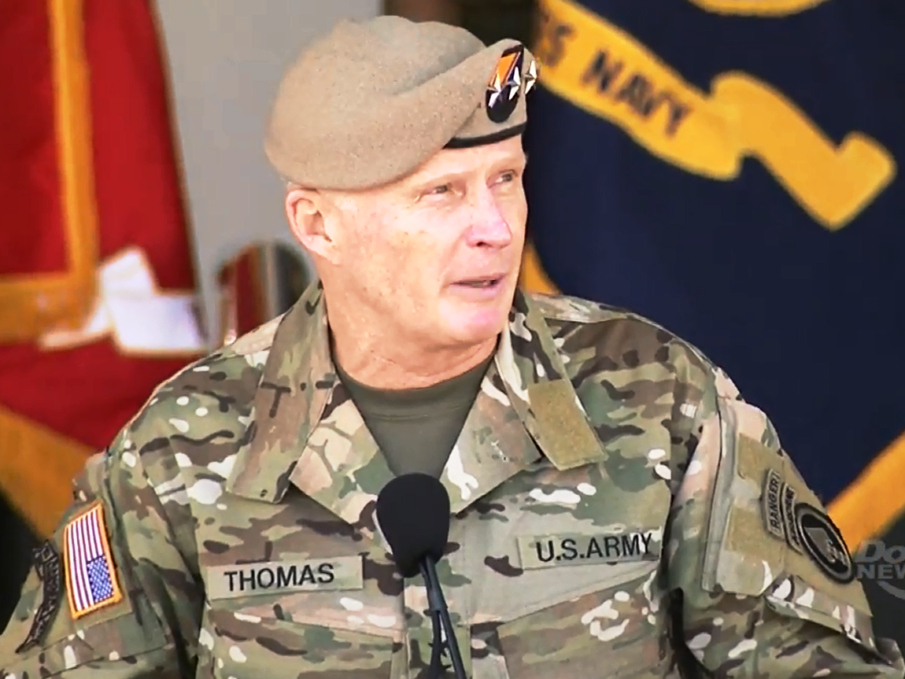The head of U.S. Special Operations Command (USSOCOM), General Raymond “Tony” Thomas III, testified before the Senate Armed Services Committee on May 4, 2017, and informed lawmakers and the public that the country’s elite special operations forces could not solve all of the world’s problems.
“We are not a panacea,” said the Army General, former 75th Ranger Regiment officer, and former Associate Director for Military Affairs at the CIA. Thomas went on to say that “We are not the ultimate solution to every problem, and you will not hear that coming from us… That has been misconstrued in some of the media circles.”
According to Thomas’ testimony, SOF units across the U.S. military number about 56,000 active duty personnel, and SOCOM accounts for about two percent of the Department of Defense’s manpower. There are currently more than 8,000 SOF personnel deployed in 80 different countries around the world. The total deployed includes almost 700 in Iraq and Syria, combatting terrorism as well as supporting local forces, and contingents in Afghanistan, Yemen, Libya, Somalia, and beyond, bringing the fight to al Qaeda and ISIS-affiliated groups in all of those countries.
The high operational tempo experienced by SOF units has continued unabated since September 11th, 2001, and has led to more casualties for the community than in any previous period of sustained combat. Most recently, Navy SEAL Senior Chief Kyle Milliken was killed in Somalia battling al-Shabab, and two Army Rangers lost their lives in Afghanistan in what was probably a friendly fire incident.
Thomas stated that some of the SOF units find themselves in an “unsustainable” deployment tempo, and that such conditions are creating some “challenges for recruiting.” This has occurred over time because of the growing reliance on SOF for an ever-increasing range of missions across the globe. Many see SOF as an easy answer to every problem, given the often-times erroneous assumption that SOF can respond to every mission type, and given their comparatively small footprint and ability to more rapidly deploy than conventional forces.
Committee chairman John McCain, a Republican from Arizona, pointed out the “seemingly insatiable demand for the unique capabilities of our special operators” at the hearing, underscoring Thomas’ point. Senator Tim Kaine, meanwhile, a Democrat from Virginia, worried out loud that the “growing SOF myth, that you can use special forces and nothing else to achieve your goals,” would lead to a further strain on the force.
Thomas did not dispute these claims and stated that the false perception that SOF could do it all was “something we battle all the time.” Thomas went on to state that, “There have been too many books and movies that imply that we go it alone or do it alone. That’s completely incorrect.”
Thomas went on to decry the uncertainty surrounding the SOCOM budget, given the way budgeting has been done in recent years, through the use of contingency funds and continuing resolutions out of Congress, and spending caps that come into play as a result. Thomas would like to see the lack of predictability in budgeting come to an end.
Thomas concluded his prepared remarks to the committee by stating that he maintained three priorities for SOCOM for both the present and moving into the future. He stated that:
First, SOCOM is fully committed to winning the current and future fights. Second, we must transform our force to be prepared to deal with all future adversaries. Finally, we must continue to place the greatest emphasis on selecting, retaining, and empowering our people, and sustaining them and their families.”
America’s Special Operations Forces are undoubtedly an invaluable and highly-capable resource for achieving the country’s strategic aims. That said, they are incapable of taking that burden on indefinitely, or even in a more wide-ranging manner than that which they already do.
Already have an account? Sign In
Two ways to continue to read this article.
Subscribe
$1.99
every 4 weeks
- Unlimited access to all articles
- Support independent journalism
- Ad-free reading experience
Subscribe Now
Recurring Monthly. Cancel Anytime.










COMMENTS